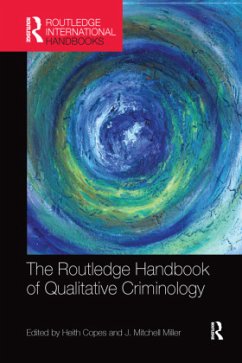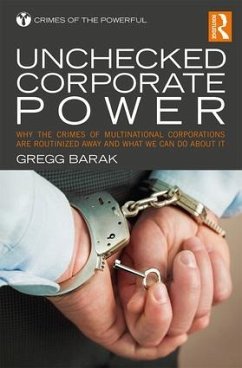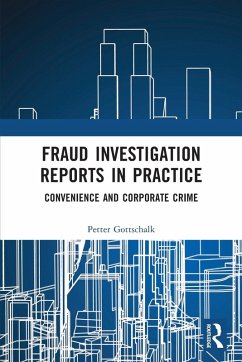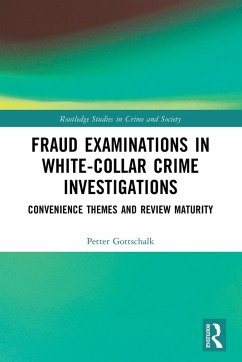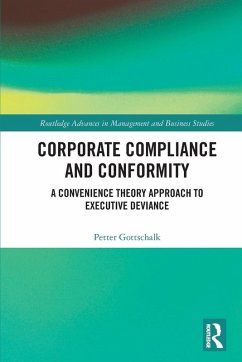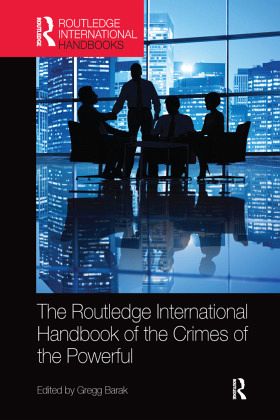
The Routledge International Handbook of the Crimes of the Powerful
Versandkostenfrei!
Versandfertig in 6-10 Tagen
51,99 €
inkl. MwSt.

PAYBACK Punkte
26 °P sammeln!
Across the world, most people are well aware of ordinary criminal harms to person and property. Often committed by the powerless and poor, these individualized crimes are catalogued in the statistics collected annually by the FBI and by similar agencies in other developed nations. In contrast, the more harmful and systemic forms of injury to person and property committed by powerful and wealthy individuals, groups, and national states are neither calculated by governmental agencies nor annually reported by the mass media. As a result, most citizens of the world are unaware of the routinized "c...
Across the world, most people are well aware of ordinary criminal harms to person and property. Often committed by the powerless and poor, these individualized crimes are catalogued in the statistics collected annually by the FBI and by similar agencies in other developed nations. In contrast, the more harmful and systemic forms of injury to person and property committed by powerful and wealthy individuals, groups, and national states are neither calculated by governmental agencies nor annually reported by the mass media. As a result, most citizens of the world are unaware of the routinized "crimes of the powerful", even though they are more likely to experience harms and injuries from these types of organized offenses than they are from the atomized offenses of the powerless.
Research on the crimes of the powerful brings together several areas of criminological focus, involving organizational and institutional networks of powerful people that commit crimes against workers, marketplaces, taxpayers and political systems, as well as acts of torture, terrorism, and genocide. This international handbook offers a comprehensive, authoritative and structural synthesis of these interrelated topics of criminological concern. It also explains why the crimes of the powerful are so difficult to control.
Edited by internationally acclaimed criminologist Gregg Barak, this book reflects the state of the art of scholarly research, covering all the key areas including corporate, global, environmental, and state crimes. The handbook is a perfect resource for students and researchers engaged with explaining and controlling the crimes of the powerful, domestically and internationally.
Research on the crimes of the powerful brings together several areas of criminological focus, involving organizational and institutional networks of powerful people that commit crimes against workers, marketplaces, taxpayers and political systems, as well as acts of torture, terrorism, and genocide. This international handbook offers a comprehensive, authoritative and structural synthesis of these interrelated topics of criminological concern. It also explains why the crimes of the powerful are so difficult to control.
Edited by internationally acclaimed criminologist Gregg Barak, this book reflects the state of the art of scholarly research, covering all the key areas including corporate, global, environmental, and state crimes. The handbook is a perfect resource for students and researchers engaged with explaining and controlling the crimes of the powerful, domestically and internationally.






